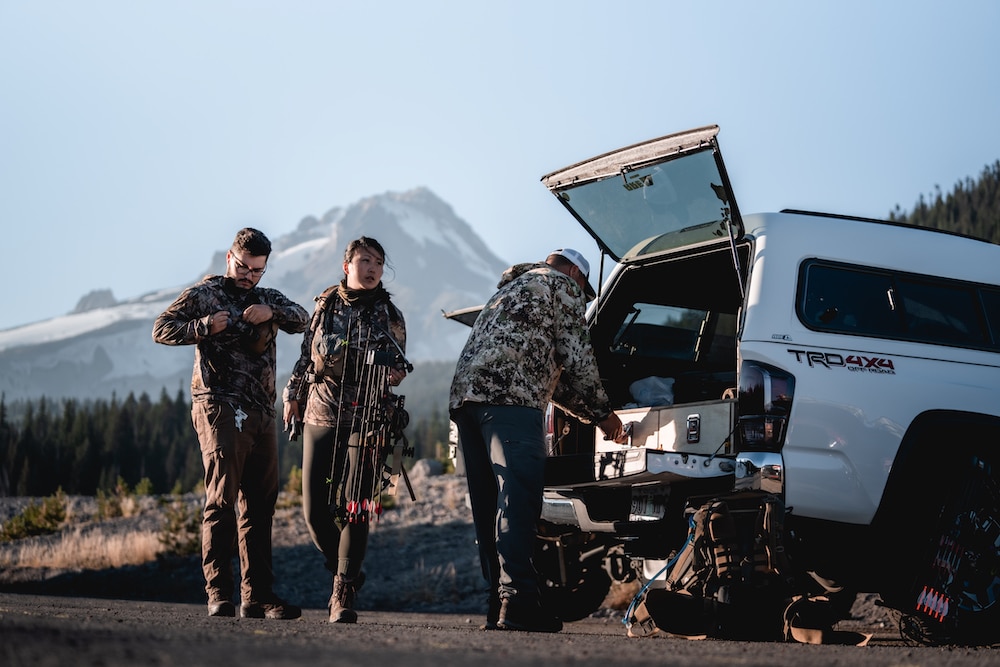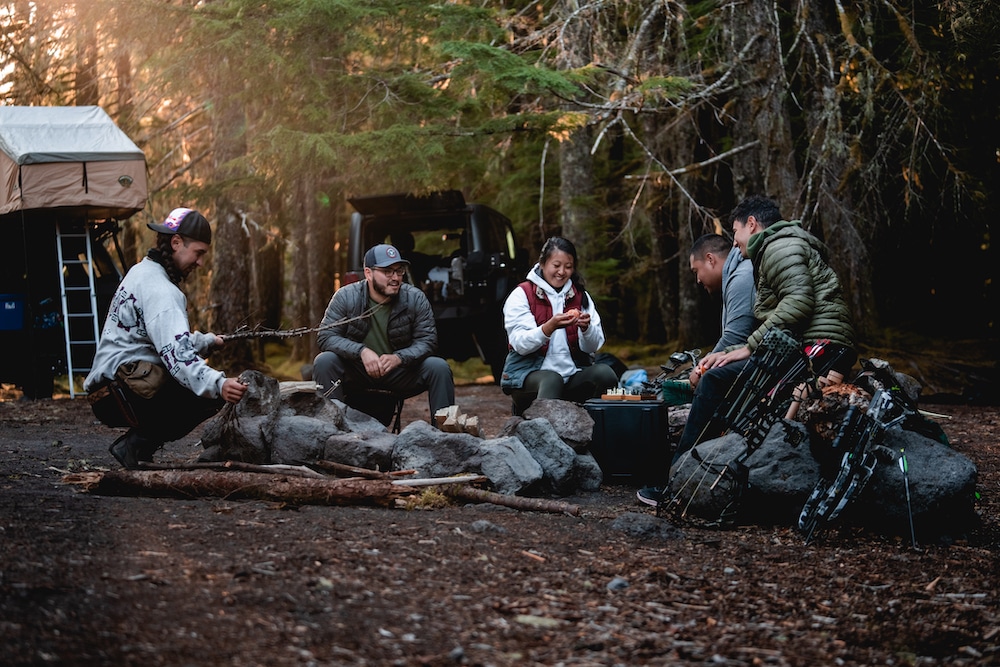The high country is home to breathtaking mountain views and bountiful hunting opportunities for anyone who dares to chase big game above the tree line. However, bowhunting at such altitudes can pose challenges far greater than sore legs from hiking in steep country. Oxygen levels are lower at high altitude, making altitude sickness a serious concern, especially for nonresident hunters who spend the majority of their days near sea level. Don’t be discouraged, though. Opportunities await those who take preventive measures seriously when acclimating to higher elevations.

Arrive early and stay at a hotel or camp at the base of the hunting land to acclimate yourself, especially if where you’re coming from is at or below sea level. Photo Credit: BU
If you’re bowhunting the alpine, odds are you’ll have spent plenty of time exercising during the offseason to prepare your body for the challenge that lies ahead. Regular exercise is critical prep work to set yourself up for success, but don’t overlook the importance of arriving early for your hunt. According to the Centers for Disease Control and Prevention, it can take three to five days to acclimate to high elevations. If you’re heading to the mountains from sea level, budget a few days on the front end of your trip to spend time near your hunting area at high elevation. Consider booking a hotel at an elevation similar to where you’ll be hunting. Not only will the extra time help your body adjust to the higher elevation, but you’ll have peace of mind from a final review of your gear list to make sure you’re ready for the hunt.

Break up your ascent and camp overnight before climbing higher. Photo Credit: BU
Once you arrive, ascend the mountain gradually. The CDC recommends that you avoid going from low elevation to more than 9,000 feet in one day. Once you’ve reached 9,000 feet, move your sleeping elevation no more than 1,600 feet higher per day. Add an extra day for acclimation for every additional 3,300 feet you climb.
Your body loses water as you increase altitude. Not to mention, you’re usually sweating and exerting lots of energy, which reinforces how critical water is when spending time in the mountains. Make sure your water source is readily available when hiking. Keep a Nalgene bottle on your backpack’s hip belt, or use a hydration bladder. If your water source requires too much effort to access, like removing your backpack, you’ll be less likely to use it. Dehydration can result in miserable altitude sickness symptoms and even an early end to your hunt.
It’s important not to ignore healthy eating habits when spending time at elevation. Potassium loss is a common result of dehydration, which can lead to muscle cramping. Most dehydrated backpacking meals are lightweight and packable, but they don’t always include the necessary nutrients to combat altitude sickness. Consider bringing whole foods in your backpack such as bananas, avocados, or spinach.
Acute mountain sickness, or AMS, is the most common form of altitude sickness. Headache, fatigue, loss of appetite, nausea and vomiting are all symptoms associated with the disease. If you experience any of these symptoms on your hunt, reduce elevation immediately. As the name implies, AMS can have a rapid onset when you’re traversing steep, rugged, alpine terrain. Returning to a more manageable elevation while allowing your body to acclimate is a good practice to avoid worsening symptoms.
While it may take some effort to acclimate to thin air and lower oxygen levels, the rewards are worthwhile. Steep, rugged terrain usually has significantly less hunting pressure than more accessible areas. Take the time to prepare properly and enjoy your journey to the summit. A hunting experience of a lifetime awaits.